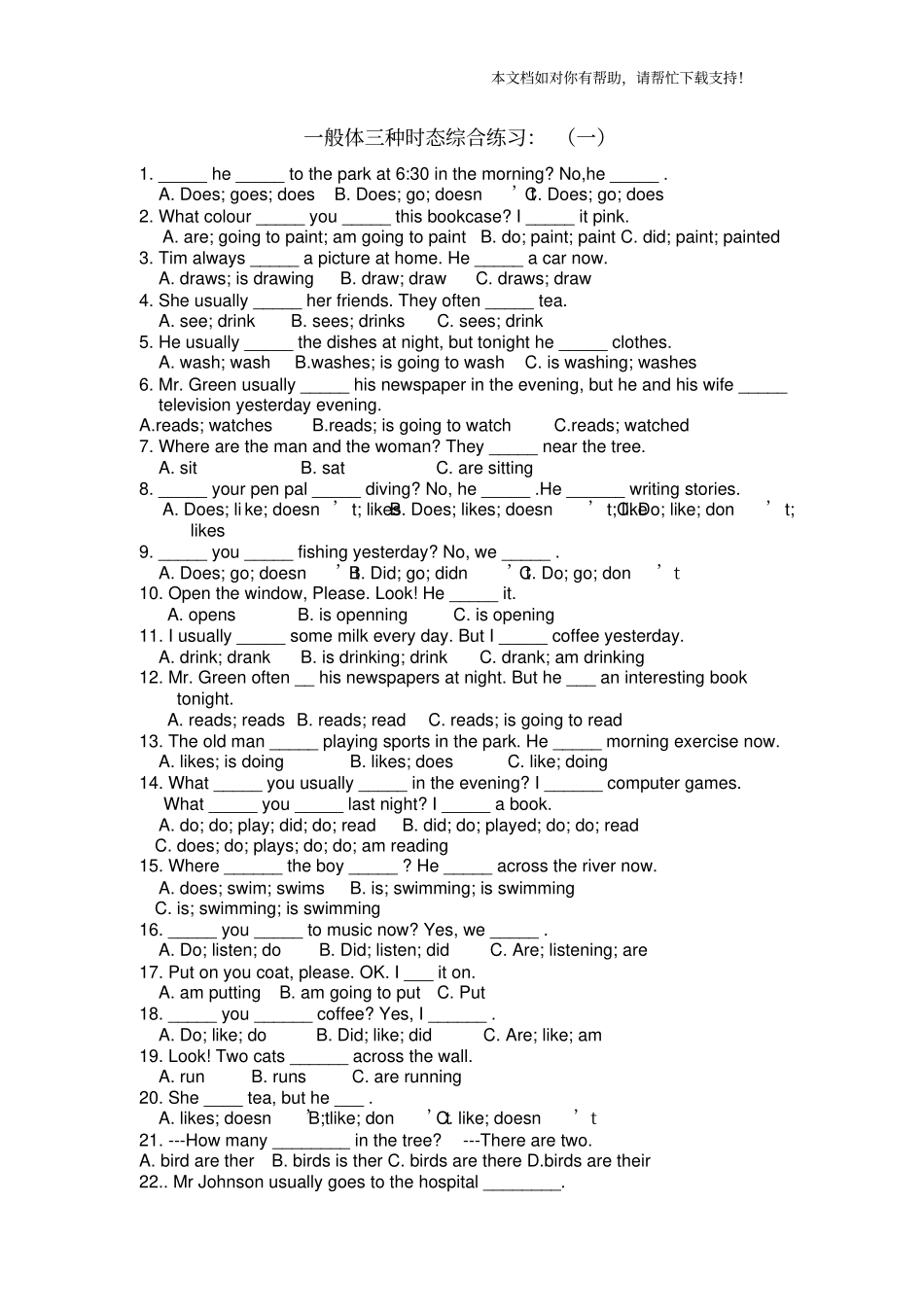本文档如对你有帮助,请帮忙下载支持!一般体三种时态区别: (一)项目一般现在时一 般 将 来 时一般过去时概念a 表示经常发生的动作或存在的状态以“现在 ”为起点,谈将要发生的动作或状态表示过去经常或偶然发生的动作或存在的状态b 表示客观存在的真理。时间状语1. often, usually, sometimes;tomorrow; later (on); soon; in two days; the day after tomorrow; next Monday/ week / year ⋯yesterday morning the day before yesterday last night; just now; two days ago in the past; one day 2. every day / morning 结构do / does 1. am / is / are going to do ⋯2. will / shall do ⋯did 例句He watches TV every day. He doesn’t watch TV . Does he watch TV? Yes, he does. / No, he doesn’t.He is going to swim later. He isn ’t going to swim later. Is he going to swim? Yes, he is. Will he swim later? No, he won ’t.He was 5 last year. He wasn’t 4 last year. Was he 5 last year? Yes, he was. No, he wasn’t.How old was he last year?备注主语人称分:单三人称非单三人称will not= won’t;shall not= shan’t1. 实义动词 do 2. be(was, were) 3. There be 句型动词的单三形式变化规则:1. 一般情况下,直接加-s : works, comes 2. 以 s, x, sh, ch 或 o 结尾的 , 加-es: watches, does 3. 以辅音字母 +y 时, 变y为i加 -es: flies, studies 4. 以元音字母 +y 结尾的, 直接加 -s: plays 5. 特 殊 变 化: have- has, be- is What is he gong to do later? =What will he do later? 动 词 过 去 式 的 规 则 变化:1.一般情况下,直接加--ed play— played 2. 以 e 结尾的,只加— d love--loved 3. 辅音 +y, 变 y 为 i 加— ed carry — carried 4. 双写加 — ed stop; drop; trip; plan; rob; rub 可以单独使用;也可以用作宾语从句其他几种表达方式有:(1) am / is / are to do sth. (2) am / is/are about to do sth (3) come, go, arrive, leave, fly, move, take off (起飞 )的现在进行时表示一般将来时态(4)...


